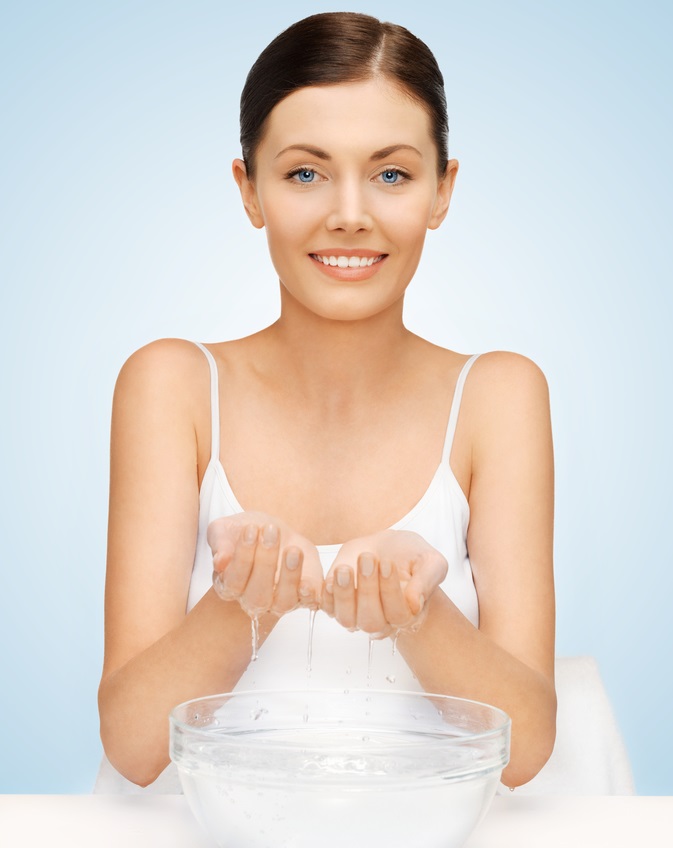It may come as a surprise to those who have oily skin, but every single skin type does produce oil, even dry skin. The oil produced by your skin is there to help keep the skin soft and pliable, it helps to protect against wrinkling. The oil your skin produces also helps to make it somewhat waterproof, too. However, if you have an oily skin, you will be well aware of how troublesome it can sometimes be. Here, we are to discuss some oily skin problems and the ways to control them.
The oil responsible for your shiny skin is made in the middle layer of the skin, the dermis. Tiny glands called sebaceous glands produce this oil, along with some wax, and they are part of the hair follicle that gives us our hair. Remember that although we are often unaware of it, women’s faces are actually covered by very fine, downy hair, and it is from these follicles and their attendant sebaceous glands that the oil comes from.
Oily Skin Problems in the Teens and Beyond
We are all born with a protective layer of oil on our skin, which protected the skin of the fetus from the surrounding amniotic fluid. This layer is called the vernix caseosa and it keeps the baby’s skin free from wrinkling or becoming irritated. The vernix caseosa shows up on newborns as a white layer, which is removed with the baby’s first bath. Most children, prior to puberty, have any problems with oily skin, but once they approach their teens, oiliness appears and begins to cause trouble.
- The onset of puberty is usually the time when the sebaceous glands go into overdrive. As hormones that turn children into young men and women course through the body, many changes occur, and one of the most annoying changes is acne caused by excessively oily skin. As the sebaceous glands become clogged with excess wax and oil, they can become infected, resulting in the pimples and pustules associated with acne.
- As time passes and people pass into their twenties, the hormones settle down fairly well so that oily skin problems generally diminish. However, women can still be affected by oily skin, even if they usually have normal or dry skin, when they go through their normal menstrual cycle. A spike in hormones to stimulate ovulation and then the menstrual period can cause skin to become oily, and often pimply.
- The aging process will help to calm down hormonal surges as a woman approaches forty, but she will still be experiencing some temporary oiliness throughout this timespan. An acne outbreak will become less likely, too.
- Just when a woman thinks that her complexion has finally stabilized, she will begin to experience menopause. Now the body produces less estrogen as the ovaries shut down, but more testosterone now enters the system. It is this increased level of testosterone that causes the skin to become oilier, and it can trigger adult acne as pores clog and become infected.
It’s easy to see that nearly every time of a woman’s life, with the exception of childhood, can be affected by excessive oiliness.
Keeping Oily Skin under Control:
Oily skin need not be the defining element of your complexion, there are ways to deal with oiliness and keep it under control, and also handle the problems that oiliness can cause.
- Cleanliness is one of the ways to keep your oily skin under control. You need only wash twice a day, washing more often than this will only make your skin dry and your sebaceous glands will work overtime to produce more oil to compensate. Washing twice a day is enough – morning and evening. Wash thoroughly before applying moisturizer and makeup and be sure to remove all makeup before going to bed.
- If you have acne, you will have to be particularly careful in how you clean and treat your oily skin. Be sure to choose an acne face wash that is designed to wash acne skin gently, but completely.
- Oily skin is one of the major skin types, but is probably the one that can be the most difficult with which to live. When you are choosing a facial cleanser, moisturizer, and cosmetics, be sure to choose products that are made for oily skin. Using products based on mineral oil can make your oily skin worse, and could lead to acne.
- When you wash your face, use your hands rather than a face cloth, your hands will be much less likely to abrade your skin and damage it. Also, use tepid water rather than hot, which can strip too much oil off the skin and cause your body to produce more oil than it normally would. If you do use a washcloth, do not use it more than once before throwing it into the laundry hamper; a used washcloth can harbor bacteria and also contains all the dirt you removed from your face during the last wash.
While keeping your oily skin in good condition can be more difficult than if your skin was dry or normal, it is not too difficult if you understand the underlying reasons for the oiliness and use the appropriate products for washing, moisturizing, and makeup.
Also check:
How to treat oily skin with natural remedies?



You must be logged in to post a comment Login